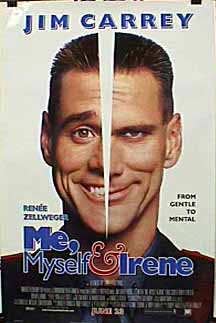Your Friends and Neighbors
Your Friends and Neighbors by Neil LaBute (In the Company of Men) is must-see cinema, though you will come away from it depressed and angry. In the midst of our frivolous, postmodern era, LaBute has, at least in this film, a true modernist edge to him. Like Beckett or Pinter he presents us with a world that is frighteningly bleak and nasty, but whose resemblance to our own world it is impossible to ignore. True, he overstates his case. The pretentious title, like his refusal to name his six major characters during the film itself, is meant to suggest a universality that is really just vulgar “pessimism” or fashionable cynicism. It is not justified by his material. But, that having been said, we have to admire the corner of reality he has staked out for himself while ignoring the implied Grand Statement about the failure of communication in “relationships.
Only with the end credits do we learn that the major characters bear the joke names Mary (Amy Brenneman), Barry (Aaron Eckhart), Terri (Catherine Keener), Cheri (Nastassja Kinski), Cary (Jason Patric) and Jerry (Ben Stiller). Mary is married to Barry, an uxorious husband who does not satisfy her in bed, and they are good friends with Jerry, a drama teacher who sleeps with his students, and Terri, his live-in girlfriend. Jerry likes to talk during sex; Terri can’t bear it. “Any talking at all just kills it for me. Maybe it’s just me,” she says, “but f***ing is f***ing. It’s not a time for sharing, I don’t care what anybody says.” The question: “Is it me?” is picked up from the anxiously incompetent Barry and resonates throughout the film in one form or another.
Barry and Jerry are friends with Cary, a bachelor gynaecologist who begins the movie in one of its several memorable scenes by rehearsing himself for a sexual encounter in which he is trying to fake the tiniest bit of tenderness to veneer the surface of his barely controlled violence and contempt, not only for women but for the world at large. “Yeah. I believe that,” he says, satisfied with his rehearsal. “I mean, if I were a chick I’d believe that.” Four of these five characters meet Cheri in an art gallery where she is an “artist’s assistant” and conduct an identical dialogue with her until all diverge in ways appropriate to themselves. Cheri is a passive vehicle whose purpose it is to bring out the essential character of others. She ends up sleeping with Terri and, like Jerry, begging her for verbal assurances which are not forthcoming.
The other way in which the characters are compared is when they talk, in different contexts of “the best you ever had” sexually. Barry’s best, for instance, is himself. “Nobody makes me come the way I do.” But the movie’s most memorable and disturbing scene comes as Barry, Jerry and Cary are shown in a sauna, while Cary describes to the other two the best he ever had, which was his part in the homosexual gang rape of a high school classmate called Timmy. “We were some crazy f***ers at that age,” Cary laughs, scarcely noticing the slack-jawed astonishment of Barry and Jerry. “It’s never been like that with a woman, as many as I have had. Not even close.” He adds that Timmy “did everything right. . .He never turned us in. I admired him for that . . .He felt something special happened too, I’m sure of it.”
The possibility of an elaborate put-on has to be considered here, but Cary’s humorlessness and pathological sense of justice — “You would have taken the same steps,” he insists to his two friends, “common decency dictated the whole thing” — suggest that he really does bear his full part in LaBute’s triptych of what sex reduces to among men. And which of the distaff trio will he end up with? The heartless Terri, who is his female counterpart? Or his opposite, the frightened and passive Cheri? Or perhaps the needy adventuress, Mary? I will not spoil the surprise, but the final moments of the film in which all the characters are shown in their most characteristic sexual postures culminate in a scene between Cary and one of them that is almost as remarkable and depressing as the tale of Timmy. Decent folk will come away from this movie determined to take a vow of celibacy, but it can’t be denied that it is a work of genius.
Discover more from James Bowman
Subscribe to get the latest posts to your email.





